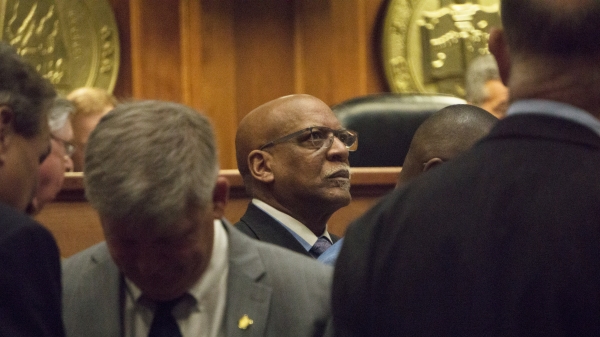By Bill Britt
Alabama Political Reporter
MONTGOMERY—In an essay on the Senate Republican Caucus website, newly-minted lawmaker, Sen. Larry Stutts, (R-Sheffield) touts the many benefits of zero-based budgeting (ZBB) without addressing the downside. Senate President Pro Tem Del Marsh (R-Anniston) is a big proponent as well. We reached out to him for comment, but did not receive a reply.
“Zero-based budgeting deviates from traditional budgeting in that each year’s budget is created from scratch. In contrast, traditional budgeting takes the previous year’s budget as a template and then builds off it. Zero-based budgeting forces managers to think about how every dollar is spent, every year. This process also forces them to justify all operating expenses and consider which areas of the company are generating revenues,” according to Investopedia.
Stutts, an OB/GYN, whose first act in the legislature was to try to abolish a law related to the death of one of his patients says, ZBB has been adopted to, “root out waste and push state agencies to operate more efficiently.”
ZBB differs from the current budgeting approach, which is incremental budgeting, where a baseline is set based on past needs. The main criticism of incremental budgeting is that government agencies spend more money than they actually need to insure that funding levels remain the same or increase year after year.
ZZB was first adopted in the 1970’s by then, President Jimmy Carter, but was later abandoned under President Ronald Reagan.
Under a heading of lessons learned by The National Conference of State Legislatures’ cautions, “ZBB has more than one form and a proposal to adopt it should be clear on whether it is expected to be an analysis of all government, a tool to respond to a fiscal crisis, or a periodic, revolving review of state agency operations and budgets.”
The NCSL also found any form of ZBB, “is likely to be an elaborate and time-consuming process, and will add at least a level-or many levels-of complexity to the current budget process.” Its report also states that ZBB, “will take continued commitment from leadership and a commitment of time from legislators immediately involved to make it useful to a legislature.”
“Many critics argue that the benefits of zero-based budgeting do not justify its time cost. Further, the process can be gamed by savvy managers to get more resources into their departments. It can lead to a change in culture where there is a decreased spirit of cooperation in the company, as workers feel expendable,” according to the Investopedia study.
Financial web states, “If applied intelligently, ZBB offers a lot of advantages and is a useful tool to curb inflation and unnecessary expenditure.” But,it also warns, “Should not be used indiscriminately or too frequently. A healthy time-gap is needed for realizing full potential of ZBB.”























































